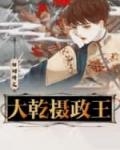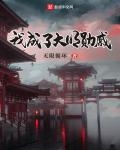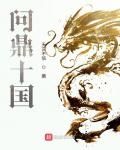Chapter 67: Dum-dum Bullet
There is one issue that must be clarified. Don't be fooled by the fact that the scale of the rifle is often 700 to 800, or 1,000 to 2,000. In fact, it is all bluffing. When you don't use a scope and only use mechanical aiming, at a distance of 200 meters, the crosshairs are already larger than the target. At this time, it is meaningless to require precise shooting, and whether you can hit the target basically depends on guesswork.
Or--
Rely on feeling!
What is feeling?
Half of it is guesswork, and the other half is still guesswork.
The Lee Enfield's standard range is as long as 1,800 meters. At this distance, not to mention hitting a person, even an elephant cannot be hit. Under normal circumstances, the attack range of a rifle is only about 100 meters, and no further than 200 meters. If the distance exceeds 200 meters, a scope must be used to assist in aiming.
The Lee Enfield rifles equipped by Rock and his men can be regarded as the most advanced rifles in the world, but Rock and his men were not equipped with scopes. Although scopes have been used since the South American War, the truly practical scope was not developed until 1904 by Carl Zeiss of Germany.
In fact, it doesn't matter whether there is one or not. Rock and his men don't have it, and the Boer guerrillas don't have it either. At a long distance, Rock and his men can use heavy machine guns to suppress the Boer guerrillas, but the Boer guerrillas don't have heavy machine guns to fight back. This is an outright asymmetric war.
In fact, Rock and his cavalry also carried heavy machine guns. Although the heavy machine gun was "heavy", it only weighed a little over 50 kilograms. With four boxes of bullets, it was not very heavy. It was very convenient to transport it with horses and it was also very simple to assemble. With five or six people working together, the heavy machine gun position was set up in less than two minutes.
In fact, there was no need to do so. When Rock's heavy machine gun positions were set up, the flanking troops led by Anton had also returned to their positions. The Boer guerrillas did not resist stubbornly, but chose to surrender.
It should be emphasized that the British prisoner policy during this period was still very relaxed. According to the regulations of the expeditionary force headquarters, any Boer guerrilla member who surrendered to the British troops would be treated leniently by the expeditionary force headquarters as long as they vowed not to oppose the British army again.
Of course, policy is policy, and implementation is another matter. When Rock and Henry set out, August Russell dictated an order from the expeditionary force's chief of staff, Sir John Kitchener, that all captured Boer guerrillas should be shot on the spot, whether they were wounded and captured, or surrendered voluntarily.
Note that August Russell "dictated" and there was no command document, at least Rock and Henry did not see the command document.
So how to deal with these prisoners is still a big problem.
"Locke, we have killed 35 Boers, captured 11, and prepared an eight-man firing squad. We have done a great job this time." Henry was very happy. Wiping out a guerrilla force of 46 people at one time may not be a big deal in the army, but it is a rare achievement for the police.
What's more, before this, the expeditionary force had suffered repeated defeats on the front battlefield. As far as Henry knew, this was the first time that the Boer guerrillas were annihilated in an organized manner.
"Henry, don't be anxious. These prisoners cannot die. They are still useful." Rock didn't want to kill the prisoners. These prisoners were still of great use.
"Can't die? Have you forgotten what the director said when we set out?" Henry didn't think too much about it. The lenient policy of the expeditionary force headquarters was for the Boers to see, and the actual implementation was another matter.
"Don't worry about what the director said. I want to ask you, have you seen the relevant command documents?" Rock would not obey a "verbal" order. What if August Russell did not admit it in the future?
“I didn’t see it—” Henry looked confused.
"Then just pretend it never happened." Rock is not stupid. What if this is a trap?
Don't think that this kind of thing is impossible to happen. Such a case happened in the late period of the Boer War. A British captain was dismembered by the Boer guerrillas. Then the captain's men wiped out the Boer guerrillas. In the process, they also killed a German pastor. This attracted the attention of the German emperor. In the end, two colonial officers were shot as scapegoats.
The two colonial officers were Australians, and later the Australians made a movie mocking the sanctimonious British.
Unfortunately, Rock had seen that movie, so he would not make this mistake. Regardless of whether the British would default on their promises or not, Rock would not give the British a chance.
"-How is that possible? Locke, you have to think carefully, that is the director's order." Henry didn't expect Rock to dare to disobey orders. This is very dangerous. Even if he successfully completes the mission of the expeditionary force headquarters, he will inevitably be bullied by August Russell.
"I didn't say I was disobeying orders. I just didn't kill them now. Those Boer prisoners are very useful. Hand them over to Stanley and let them stay in a conspicuous place. This way we don't have to worry about the Boer bombs." Rock's method was a bit despicable, but it worked.
"Good idea, Locke, you are a genius!" Henry was not stupid and immediately understood what Rock meant.
The main way the Boer guerrillas attacked railway lines was with explosives. They would first blow up the train and then launch the attack. Otherwise, the Boer guerrillas would not be able to catch up with the train.
In the past, the train had no way out and could only respond passively. Now Rock placed the Boer prisoners in a conspicuous position on the train. If the Boer guerrillas want to blow up the train, the first to die will be the captured Boer guerrillas. Rock wants to see if the Boers can be so cruel as to do this.
Soon, the train started again, and this time it was much faster, about 30 kilometers per hour. Although it was still not fast enough, if nothing unexpected happened, the commandos should be able to complete the mission of the Expeditionary Force Command.
Although he had seen the dawn of completing the mission, Rock was not happy. In the battle just now, four Chinese policemen were killed on the spot and two were seriously injured. Given the medical conditions of that era, serious injuries could almost be considered death.
There were casualties and serious injuries, but no minor injuries. This seemed unreasonable. After checking the seized weapons and ammunition, Rock discovered that many bullets used by the Boers had their warheads modified to varying degrees using files, which also meant that the Boers were using dum-dum bullets on a large scale.
Yes, it is the dum-dum bullet. The name of the dum-dum bullet comes from its place of origin, the British arsenal in the small town of Dum Dum near Kolkata, India.
Although the Hague Convention of 1899 explicitly prohibited the use of dum-dum bullets on the battlefield, it was obvious that the Boers did not abide by this rule, and of course Rock believed that the British would certainly not abide by it either.
For the British and the Boers, the Hague Convention—
What's that?






